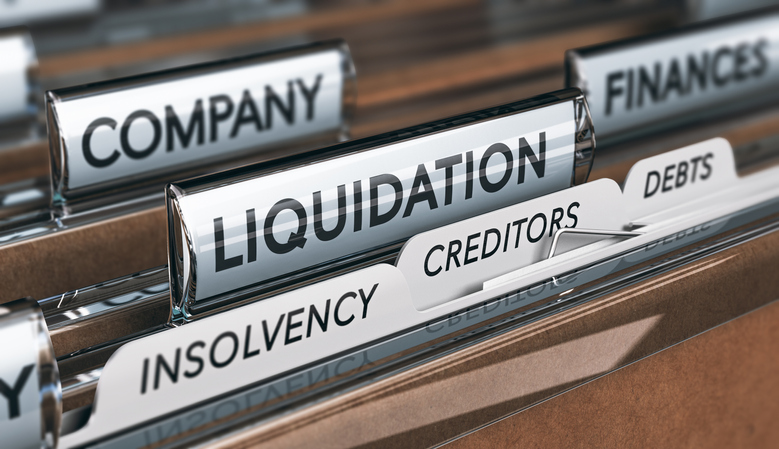Arise and Fall
Disqualification of Director for gambling with the position of creditors.
On 30 June 2021, the COVID-related temporary suspension of the wrongful trading provisions under section 214 of the Insolvency Act 1986 came to an end, thus once again exposing directors of insolvent companies to potential personal liability to contribute to the company’s assets. The suspension had been brought in on 26 March 2020, just after the beginning of the first COVID “lockdown”, as one of a number of measures with the broad aim of avoiding widespread business failures as the country braced itself for what the pandemic might have in store.
Whilst the threat of wrongful trading proceedings was put on hold, the question of whether action against directors under the Company Directors Disqualification Act 1986 (CDDA) in respect of their conduct during that 15-month period might still be brought was, and remains, unclear. The basis upon which a court may make a disqualification order under section 6 of the CDDA is where it considers that an individual’s actual conduct as a director of a company makes him unfit to be concerned in the management of a company (provided that it has, at any time, become insolvent).
In the recent case of Re Arise Networks Limited, in a judgment handed down in April 2019, the court decided that the sole director of that company, Mr O, had committed a serious failure amounting to misconduct and disqualified him from acting as a director for 7 years. The case brought against him by the Official Receiver alleged that he had caused the company to trade to the detriment of its creditors without a reasonable prospect of paying the creditors or of avoiding insolvent liquidation – an accusation broadly analogous to the wrongful trading provisions, where one of the qualifying criteria is that the director knew or ought to have concluded that there was no reasonable prospect that the company would avoid insolvent liquidation.
The company was part of a news and media network, operating in Africa, but with plans to launch in the UK and USA. Under its business plan, it was not expected to make any profit for 5 years and was wholly dependent upon funds loaned by associated businesses in Nigeria, by way of interest free loans. It took on staff, made programmes and launched onto the airwaves but its viewing figures were poor and this made it all but impossible to attract advertising revenue. Mr O’s reaction was to produce and deliver more programming to try to generate better audience levels. As its losses continued to grow, a further threat to the company arose in the form of the introduction of stringent exchange controls by the Nigerian government with the result that it became very difficult to transfer further funds from the associated businesses in Nigeria. Mr O remained confident that these controls would be removed; he just didn’t know when this would happen. But by 22 April 2016, being the date of the company’s liquidation, its accumulated losses were over £25m.
The Official Receiver argued that by December 2014 at the latest, being a few months after the introduction of the exchange controls, Mr O should have known that there was no reasonable prospect of paying creditors or of avoiding insolvent liquidation. Although he may have made some attempts to reduce costs, the level of increasing liabilities month on month demonstrated that he had no intention of ceasing the operation of the company at any moment. It did not cause him to alter his decision to cause the continued trading of the company. The increase in the liabilities from December 2014 to liquidation in April 2016 was in excess of £2m in relation to unconnected creditors and over £5m in relation to connected creditors.
Mr O blamed what he called a force majeure (i.e. the unexpected imposition of the exchange controls) rather than his own actions as causing the loss to the creditors. He described the difficulties of the company as being teething problems and argued that at all times there was a fair and reasonable expectation that the company could trade through its “temporary” difficulties based upon the continued willingness of the associated businesses in Nigeria to fund the company. To the criticism that there seemed to be no management accounts, he replied that because there was no revenue, there was no need for management accounts.
The court made a point of saying that ordinary commercial misjudgment is not in itself sufficient to justify disqualification; nor should decisions and actions of a director be measured on a hindsight basis. Unfitness is a question of fact or a value judgment, involving comparison with a standard of behaviour reflecting proper standards of care and compliance with duty
The question to be asked was whether there was a rational basis for the belief that sufficient funds would come into the UK, or that the company would trade out of its difficulties and funds be available to pay the increasing liabilities thus avoiding insolvent liquidation. Where a company was wholly reliant on external loans to be able to discharge its liabilities, a director needed to be able to justify a decision to cause the company to continue to trade. A mere belief by a director that all would be well (however fervently and honestly held) would not be sufficient. It had to be supported by some evidence. A belief was not in and of itself evidence.
The court considered that it was not appropriate for a director to gamble with the position of the creditors. Mr O owed them a duty throughout the entire existence of the company but did not act in the interests of those creditors and was, instead, taking risks to their detriment. His conduct demonstrated a lack of regard for and compliance with proper standards and therefore came within the concept of unfit conduct.
Notwithstanding the recent period of suspension of the wrongful trading rules, it is difficult to conclude that had the focus of the OR’s attention been not December 2014 to April 2016 but March 2020 to June 2021, Mr O would not have suffered a similar fate
Disclaimer: this article is not to be relied upon as legal advice. The circumstances of each case differ and legal advice specific to the individual case should always be sought.

